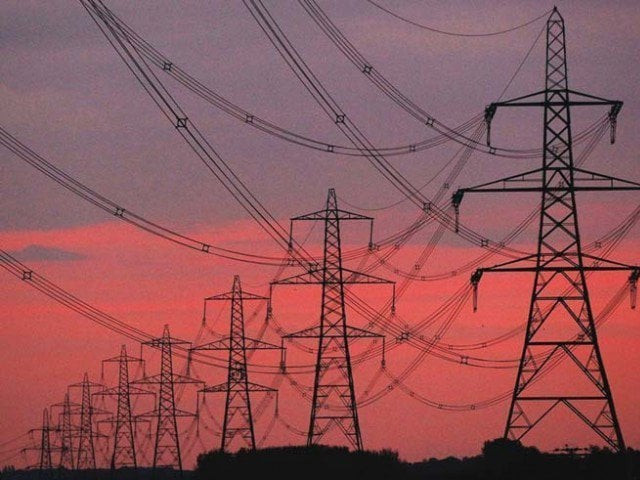20% people lack access to national grid: official
Workshop discusses evidence-based policies for sustainable use of energy resources

PHOTO: FILE
The large section of population was deprived of cleaner source of energy though national power generation capacity has been increased over the time, said Chaudhary who heads Planning Commission’s Climate and Energy Section.
“Pakistan’s future is largely linked to cleaner, cheaper and sustainable energy for all, which has direct implications for country’s economic future,” he said.
Chaudhary was speaking at the opening session of training workshop titled “Evidence-based Policies for the Sustainable Use of Energy Resources in the Asia-Pacific Region” organised by Sustainable Development Policy Institute (SDPI), in collaboration with Ministry of Planning, Development and Reforms and the United Nations Economic and Social Commission for Asia and the Pacific (UNESCAP).
He said UNESCAP is helping in building the capacity the planning ministry in preparing policy and plans for greener, sustainable and affordable energy for all.
According to Chaudhary, power generation alone was not an issue, but power distribution, transmission and affordability with minimum theft and line losses, which were currently around 17 to 19 per cent, were major challenges of the power sector.
He said Pakistan has a lot of potential in solar, wind, hydro and bio-mass to meet future energy demand and the ministry has already incorporated in its 12th five year plan which is at the final stage. We need to achieve the clean and green energy mix with negligible environmental impact and more economic dividends, he added.
UNESCAP Energy Division Chief Michael Williamson said that ESCAP through its capacity development project aim to integrate advanced energy based practices in energy planning, particularly in modeling capabilities and institutionalisation of these capacities, to understand the role of energy sector in addressing the challenge of climate change through the lens of Pakistan’s Nationally Determined Contribution (NDC) and to understand the power generation technologies through the life cycle analysis.
He said we have to change our priorities towards energy mix to help achieve Sustainable Development Goals (SDG) 7, Clean and Affordable Energy for All.
SDPI Joint Executive Director Dr Vaqar Ahmed said as part of the 12th five-year plan of planning commission, it was important for the country to put in place and follow an integrated energy plan, especially when the government is in the process of formulating a new power policy and planning departments of federal and provincial governments are also in the process of finalising long-term growth strategies.
He said it is also important to remember that the policies being proposed are based on scientific evidence.
For this purpose, the SDPI, Planning Commission and UNESCAP have joined hands to develop energy planning models, which can develop alternative scenarios of Pakistan’s future energy demand and supply needs, he remarked.
Ahmed said such models would also outline how to protect the environment, which could be ensured through the use of cleaner energy fuels. Provincial energy plans also need to be driven more by scientific evidence, which require linkages between academia, industry and provincial governments, he added.
China National Development and Reform Commission Energy Research Institute Director Dr Jiang Kejun during the training workshop explained energy modeling activities in the world, China’s energy transition & low carbon development and assessed modeling activities in Pakistan and need of energy modeling in Pakistan.
He delivered hands-on training on LEAP (Long-range Energy Alternatives Planning) to the participants which was an integrated modeling tool that provides a range of accounting and simulation methodologies for modeling energy sector generation and capacity expansion planning.
The workshop was attended by the key officials and stakeholders from the various public sector institutions including Alternate Energy Development Board, National Energy Efficiency and Conservation Authority, CPEC Center, UET Taxila and all provincial planning departments.
Published in The Express Tribune, June 13th, 2019.



1724319076-0/Untitled-design-(5)1724319076-0-208x130.webp)















COMMENTS
Comments are moderated and generally will be posted if they are on-topic and not abusive.
For more information, please see our Comments FAQ